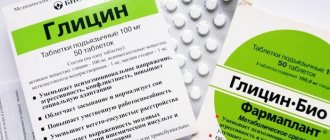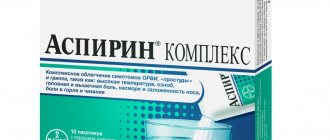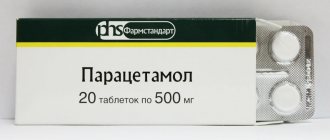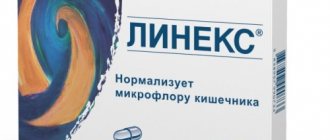Breastfeeding mothers often ask what pills a nursing mother can take. In Soviet times, it was believed that you should not take medications while breastfeeding.
However, later WHO conducted a number of studies. Research results have shown that most medications can be taken while the mother is breastfeeding. A small part of the drug passes into mother's milk. The drug reaches its maximum concentration in milk no earlier than two to three hours after administration, and then is gradually eliminated from the body. Therefore, it is simply enough to correctly calculate the safe time between taking the pill and feeding.
List of popular drugs:
- Ibuprofen is fully compatible
- Acetylsalicylic acid - compatible in a single dose
- Spasmalgon - can be taken in a single dose
- Citramon - can be taken in a single dose
- Ibuklin is fully compatible
- Ketoprofen is fully compatible
- Ketanov - fully compatible
- Analgin is prohibited for breastfeeding mothers
- Motilium - allowed for hepatitis B
- Aflubin - fully compatible
- Bioparox - fully compatible
- Acyclovir - fully compatible
- Novo-passit - allowed for breastfeeding, but with caution, choose a small dosage of the drug
- Caffeine - taken with great caution, not advisable
- Mezim - fully compatible
- Pancreatin is fully compatible
- Noshpa-fully compatible
- Voltaren - fully compatible
- Zyrtec - fully compatible
- Immune compatible, but with caution
- Immodium - fully compatible
- Claritin - fully compatible
- Lazolvan - fully compatible
- Ambroxol - fully compatible
- Sumamed is fully compatible
- Flucostat is fully compatible
- Ersefuril is fully compatible
- Enap-fully compatible
- Diclofenac - fully compatible
- Omeprozole - fully compatible
- Cefazolin - fully compatible
- Metronidazole is fully compatible
- Trichopolum is fully compatible
- Furazolidone is fully compatible
- Amoxiclav is fully compatible
- Doxycycline is compatible, but use with caution for no more than 3-4 weeks
- Ibuklin is fully compatible
- Cephalexin - fully compatible
- Smecta - fully compatible
- Activated carbon - fully compatible
- Prednisolone - fully compatible
- Pirantel - fully compatible
- Phenoborbital - fully compatible
- Phenytoin - fully compatible
- Amoxicillin - fully compatible
- Ampicillin - fully compatible
- Bicilin - fully compatible
- Ferruginous moth - fully compatible
- Folic acid - fully compatible
- Heparin - fully compatible
- Salicylic acid - fully compatible Miconazole - fully compatible Nystatin - fully compatible
Dear women, if the instructions for the drug say that breastfeeding should be discontinued while taking the drug, do not be alarmed! You just need to check the drug in one of the reference books that I wrote about above (there are also active links to help you) and if the medicine really cannot be used, then it can be replaced with an analogue with the help of a doctor or breastfeeding consultant. Almost every medicine has an analogue tested for compatibility with breastfeeding.
And I wish you to lead a healthy lifestyle and be healthy without drugs!
Best regards, Oksana Litvinova
Breastfeeding mothers often ask what pills a nursing mother can take. In Soviet times, it was believed that you should not take medications while breastfeeding. However, later WHO conducted a number of studies. Research results have shown that most medications can be taken while the mother is breastfeeding. A small part of the drug passes into mother's milk. The drug reaches its maximum concentration in milk no earlier than two to three hours after administration, and then is gradually eliminated from the body. Therefore, it is simply enough to correctly calculate the safe time between taking the pill and feeding.
What pills can a nursing mother take?
Before taking any pill while breastfeeding, you should consult your doctor and carefully read the instructions. For acute pain (toothache, headache), you can take Ketarol, Calpol, Panadol. But tablets containing analgin cannot be taken while breastfeeding. Analgesics, penetrating into milk, disrupt the process of hematopoiesis, cause changes in kidney function, and also have a depressing effect on the infant’s nervous system. Aspirin should also not be abused. When taking the drug in large doses, its concentration in mother's milk increases, and this often leads to metabolic disorders in the baby.
Among drugs for high blood pressure, Capoten is considered the safest medicine for breastfeeding. The concentration of this drug in breast milk is the lowest among similar drugs.
If you have indigestion, among all the tablets during breastfeeding, the safest would be an activated carbon tablet. Anti-poisoning medications should be taken with extreme caution, but laxatives will not affect the child’s health in any way.
You can take tablets with antihistamine action while breastfeeding, but you must choose drugs with only one action.
Almost all drugs from the antidepressant group retain high concentrations in breast milk for a long time, so they can only be taken after prior consultation with a specialist. If you are excessively nervous and irritable, it is best to replace the pills during breastfeeding with herbal tea with a calming effect.
Features of treatment and prevention
During a cold while breastfeeding, a woman should remember that the most important thing is safety for the baby. A cold can be cured with the help of medications and traditional medicine.
Breastfeeding is allowed if the woman takes only natural medications. One such medicine is Lyzobact. It contains lysozyme, which is a natural antiseptic and helps fight viruses, fungi and microbes, as well as pyridoxine, which promotes enhanced work of lysozyme.
Price from 250 rub.
If a cold is accompanied by an increase in temperature (above thirty-eight and a half degrees), then doctors recommend the safest drug for nursing mothers, Paracetamol.
Symptomatic medications will help eliminate cough, runny nose, and sore throat. They activate and strengthen the immune system and fight unpleasant cold symptoms. This group includes the following drugs:
- Lazolvan is a cough medicine that promotes the release of sputum.
- Herbal medicines, which include anise, licorice root, thyme, and so on (Doctor IOM, Bronchicum).
- To make breathing easier, drops such as Nazivin, Naphthyzin, and so on are suitable. But you can use them for a maximum of five days.
- Pinosol drops, which contain plant components and oils, will help relieve inflammation and kill microbes in the nasal mucosa.
- Sprays containing sea salt, for example, Aquamaris, moisturize the irritated nasal mucosa and promote better discharge of mucous contents.
- To eliminate a sore throat, topical medications (Hexoral, Chlorhexidine, Lugol's solution) are suitable.
- Antiviral drugs to fight infection (Grippferon).
During the treatment of colds, you should drink as much fluid as possible, since water is needed to keep the mucous membrane of the nasopharynx moist and to thin the mucus. You can connect rinses. It should be remembered that medications should only be taken with the permission of the attending physician. In no case should you exceed the dose of the drug.
Let's look at the most effective folk remedies for treating colds:
- A drink made from milk, chicken eggs, honey and butter. Heat two glasses of milk, add one egg and one teaspoon each of honey and butter. Mix everything and drink before bed.
- Mix half a glass of warm water with five drops of iodine and drink. After this, it is recommended to chew one clove of garlic.
- You can put mustard in powder form into your socks.
- Bake the onion in the oven, take it in any quantity until the cold disappears completely.
- Black radish with sugar. The radish is chopped into small pieces and sprinkled with sugar. Bake in the oven for two hours. Strain and drink one tablespoon five times a day.
- Garlic and honey. Finely chop the garlic and mix with an equal amount of honey. Take the mixture before bed with water.
- Inhalation with garlic and honey. The procedure is carried out within fifteen minutes. After this, it is recommended to wrap yourself in a blanket and drink tea with honey.
- Inhalation over steamed boiled potatoes.
- Inhalation over brewed eucalyptus leaves.
- Gargling with thyme infusion. Mix one tablespoon of thyme and leave for an hour.
- Gargling with water and apple cider vinegar (one tablespoon of vinegar per glass of water).
- Teas from linden, raspberry, chamomile, mint with honey and lemon.
Antibiotic treatment during breastfeeding
Treatment with antibiotics during breastfeeding has a negative impact on the baby's health. If possible, such treatment should be abandoned.
If a doctor has prescribed antibiotics for breastfeeding, it is better to take them immediately after feeding or during feeding. If the drug can harm the baby, then you can stop breastfeeding for a while or express the so-called “medicated” milk. Milk with the maximum concentration of the antibiotic must be expressed and discarded two to six hours after taking the drug, and after that the baby can be fed again.
All antibiotics are divided into several groups depending on the level of concentration in breast milk and the effect on the baby’s body. Prohibited antibiotics during breastfeeding include tetracyclines and sulfonamides. Taking these drugs can lead to disruption of the development of the child's organs and to toxic damage to the body.
The group of macrolides is not so dangerous, however, caution must be exercised when using antibiotics from this group. When prescribing these medications to the mother, the child is additionally prescribed medications for dysbiosis.
Penicillins, cephalosporins, aminoglycosides are most compatible with breastfeeding. However, the duration and dosage of these tablets during breastfeeding should only be determined by a doctor.
What is the risk for the baby?
It is impossible to provide one hundred percent protection for a child from colds. But you can reduce the risks if you follow simple recommendations:
- Don't give up breastfeeding. With milk, the baby gains immunity, which will help him fight viral infections.
- You should wear a protective mask that will prevent viruses from spreading through the air. It needs to be changed after two hours.
- You should wash your hands regularly. Many viruses accumulate on your hands, so before touching your child, you need to wash them with soap.
Some drugs are very dangerous for young children:
- Analgin can cause anaphylactic shock.
- Phenobarbital disrupts the functioning of the kidneys, liver, and nervous system.
- Codeine causes constipation.
- Tetracycline and sulfonamide cause bleeding.
- Macrolides are dangerous due to dysbacteriosis.
Paracetamol during breastfeeding
Paracetamol during breastfeeding will help to quickly reduce the temperature. Within half an hour after taking the drug, the mother will feel noticeable relief. Paracetamol helps with toothache and headache. This drug in tablets can be taken during breastfeeding for no longer than two to three days. The optimal dose of the drug is one tablet of the drug up to three to four times a day. These tablets should be taken when breastfeeding so that the feeding time does not coincide with the periods of maximum concentration of the drug in the blood plasma. When treating with paracetamol, you must follow all the rules and carefully monitor the baby’s well-being.
Throughout pregnancy and lactation, women should be especially careful about their health. At this time, even the most harmless medications are prohibited from use. But there are situations when it is still impossible to do without medications.
Often new and “experienced” mothers wonder what antiviral drugs are allowed. In fact, there really are certain medications of this group. But their use must still be prescribed by a specialist. At the same time, the doctor soberly assesses the condition of the mother, the age of her child and the individual characteristics of the baby.
List of approved drugs
Paracetamol
Analogs, commercial name: “Panadol”, “Efferalgan”, “Acetaminophen”.
According to studies conducted by WHO (12 thousand women were tested), it does not cause any harm to the mother and child. Approved for use by gynecologists around the world for pregnant women.
Exclusion into milk reaches 20%. No negative effects on the child are observed. Paracetamol is even recommended for babies with fever, pain in the ear, throat, and teething.
Take 650 ml, regardless of breastfeeding, no more than once every 6 hours.
Ibuprofen
Analogues, commercial names: “Nurofen”, “Ibufen”, “Ibuprom”, “Ibuprofen”.
You can also take a non-steroidal anti-inflammatory drug during lactation, which has not only analgesic, but also antipyretic and anti-inflammatory properties. Only 0.7 percent of the active substance penetrates into milk. Ibuprofen is recommended for infants 3 months and older.
Take, regardless of breastfeeding, from 200 ml to 400 ml no more than 1 time every 6-8 hours.
Ketanov
Analogues, commercial names: “Ketanov”, “Ketalgin”, “Ketarolak”.
And although the instructions indicate that it should not be taken while breastfeeding, the aforementioned Italian reference book and the Academy of Pediatrics of America confirm that it can be taken and continue to breastfeed children.
It can be taken 21 days after birth as there is a risk of bleeding.
Take, regardless of breastfeeding, from 10 ml to 20 ml no more than 1 time every 3-6 hours.
Diclofenac
Analogs, commercial name: “Ortofen”, “Voltaren”, “Diklak”.
NSAIDs are recognized by WHO and the E-LACTANCIA guide as safe during breastfeeding. It is not entirely clear whether the drug can be taken, since the instructions indicate that breastfeeding should be suspended during the course of treatment.
Release form: injections, ointments, tablets.
Take 25 – 30 mg up to 2 – 3 times a day. It penetrates into milk within an hour after ingestion.
"Immunal" - a medicine based on herbal substances
This drug contains echinacea extract, a powerful herbal immunomodulator. The medicine is available in the form of tablets and solution. Since the use of antiviral drugs (during breastfeeding) based on ethanol is prohibited, the advantage remains with the tablets.
Echinacea helps increase the body's resistance and resistance to viruses. This component is isolated from natural plants. The medicine has a general strengthening effect, it increases the number of blood cells and prevents the penetration of pathogenic flora into the body. If infection occurs, then “Immunal” reduces the time of illness by almost half. It is not prescribed to nursing mothers who have tuberculosis, multiple sclerosis, or are HIV-infected.
"Derinat" is a universal drug
It is permissible to use antiviral drugs during lactation based on the Trade name of such medication - “Derinat”. The medicine has an immunomodulatory, antiviral, regenerating effect. The drug stimulates the functioning of the lymphatic system at the site of inflammation.
It is important that Derinat is used for rhinitis, lesions of the larynx and pharynx, and viral diseases of the oral mucosa. The medication is widely used in gynecology, and new mothers often have complications after childbirth that require antiviral therapy. There are many indications for the use of the medicine. Among the contraindications, only hypersensitivity is mentioned. If you are breastfeeding and need to use Derinat, be sure to consult your doctor first.
"Engistol" and "Oscillococcinum": homeopathic remedies
The composition of the drug "Engistol" includes sulfur and hirudinaria. There is also lactose. Therefore, if your child is intolerant to this substance, you should stop using it. The safety of a medicine is based on its homeopathic composition. This remedy has no contraindications for use, with the exception of hypersensitivity. Engistol is prescribed for symptoms of virus and flu: runny nose, fever, cough, general deterioration of health.
Another homeopathic remedy is Oscillococcinum. This drug is better known than its predecessor. Medicine is prescribed for treatment and prevention. It can be used during breastfeeding and pregnancy. Contains barbary duck heart and liver extract. It is known that Oscillococcinum has no proven effectiveness. Nevertheless, homeopathic antiviral drugs during lactation help women cope with the first signs of a cold and prevent complications.
"Anaferon" and "Ergoferon"
These two medications are produced by the same Russian pharmaceutical company. "Anaferon" contains purified antibodies to human interferon. “Ergoferon” includes the same ones, but there are also antibodies to histamine. From this we can conclude that Anaferon tablets are an antiviral agent with an immunomodulatory effect. Ergoferon is an immunostimulant that can cope with viruses and prevent allergies.
Can such antiviral drugs be used? During breastfeeding and throughout pregnancy, these drugs are prescribed by doctors without fear. But the instructions say that there is no reliable data on their safety for the child. Let us remind you that Ergoferon tablets are considered more powerful in their action.
"Genferon": rectal and vaginal suppositories
Antiviral drugs during breastfeeding are prescribed not only for the purpose of treating colds. Such drugs are widely used in gynecology. Indications for this include: chlamydia, genital herpes, mycoplasma and ureaplasma, bacterial vaginosis, erosion, and so on. Suppositories have a pronounced antiviral effect, they stimulate the immune system. This is due to the fact that the drug contains recombinant interferon in amounts from 250,000 to 1,000,000 IU. Suppositories have a slight anesthetic effect.
Recommendations for patient care
- During the day, it is recommended to constantly stay warm and calm.
- Anyone caring for a sick person must wear a mask.
- The room should be maintained at an optimal temperature (about twenty degrees).
- The apartment should have a calm environment (no loud conversations, no TV).
- Food should be light. You need to eat five to six times a day in small portions.
- You need to drink as much clean warm water, fruit juice, and herbal tea as possible.
Antiviral drugs during breastfeeding: reviews
All the described means form different opinions about themselves. The debate is especially active around homeopathic remedies. Such medications are quite expensive. But many consumers doubt their effectiveness. Most often, expectant mothers (according to statistics) are prescribed Grippferon and Viferon. These medications are considered the safest for the mother and her child. Ergoferon or Anaferon tablets are less commonly prescribed.
Women say that the earlier the antiviral composition was taken, the higher its effectiveness will be. Doctors support this opinion. Doctors also report that to ensure the baby’s safety, the medicine should be taken immediately after the next feeding. In this case, part of the active substances will be removed from the mother’s body before the next application.
Summarize
From the article you were able to find out what drugs can be used to fight viral infections during lactation. A list of medications and their characteristics are presented to your attention. Remember that it is recommended to consult a doctor before using any medication. Do not be ill!
Pregnant and breastfeeding women are confident that it is better to abstain from medications during these important periods of life. This is true. But situations arise when one-time or long-term medication cannot be avoided. By what criteria is their toxicity assessed and what can be treated during lactation.
Emergency or planned prescriptions of medications may be associated with exacerbation of chronic diseases, the development of acute pathologies or postpartum complications.
In each case, therapists, obstetricians and pediatricians assess the degree of toxicity, the level of entry into milk and the possible risk of negative effects on the baby’s body.
Many developments in the pharmaceutical industry do not undergo testing and clinical trials in pregnant and lactating groups. There are few or no reliable, adequate studies. The list of studied means is quite short. But one thing is clear: if the drug is absorbed and distributed in the body fluids, then to a greater or lesser extent it passes into breast milk.
Therefore, in most annotations for drugs, manufacturers write that use should be careful, for special purposes, without exceeding the dosage.
The degree of risk of any drug is assessed according to several criteria:
- Toxicity.
- The true amount of the substance that enters the baby’s body with milk.
- Features of the influence on immature organs and systems of the newborn.
- The period of elimination of the drug from the child’s body.
- Possibility of allergic manifestations.
- Individual characteristics of mother and baby.
- Duration of taking the drug.
Most new drugs have a low degree of toxicity and are considered safe for nursing mothers. This also applies to external preparations: ointments, creams, drops and solutions. They are not absorbed into breast milk.
First signs
Viral infections enter the body through the upper respiratory tract. During breastfeeding, women can very easily become ill with acute respiratory diseases. This is due to the fact that during lactation a lot of oxygen is required, and the respiratory organs are under severe stress. Find out if sore throat is airborne here.
From the moment a viral infection enters a woman’s body until the disease itself occurs, three days can pass. And the child, through milk, already manages to receive the virus, antibodies to it and special enzymes that allow him to produce his own antibodies, and protect the immune system from complications. When the woman discovered that she was ill, the baby had already either developed immunity to this pathogen or became ill. Symptoms of a cold in an infant are described in the link.
The first signs of a cold:
- General weakness.
- Increased body temperature.
- Sneezing.
- Cough.
- Nasal congestion or runny nose.
- Sore throat.
- Congestion or noise in the ears.
The most effective medications for runny nose and nasal congestion are collected here.
When a breastfeeding woman notices the first signs of a cold, she should adhere to the following rules:
- There is no need to wean your baby off the breast, even if he is already sick. Otherwise, the baby’s immunity will weaken, and the disease will be much more severe and longer.
- You should feed your baby naturally so that he or she develops antibodies to the virus. There is no need to express milk.
- You should not boil breast milk, because when heated it loses its properties and nutrients.
- Through mother's milk, the baby will receive the necessary medications.
Antibacterial agents
Despite the fact that drugs of the penicillin, cephalosporin series and macrolides are approved for the treatment of nursing mothers with the wording in the annotation “usually not contraindicated”, in any case the question of the advisability of such treatment, calculation of dosages taking into account the condition of the mother and baby is required. Antibiotics from these groups can penetrate into milk only in negligibly small quantities. Average: 0.090% of a single dose for the patient.
There is a danger for babies after using antibacterial agents. They can cause:
- Allergic reactions.
- Imbalance of the gastrointestinal microflora with impaired production of vitamin K and D, and as a result - prothrombin deficiency.
During lactation the following are allowed:
- From macrolides Erythromycin. The rest Sumamed, Vilprofen, and other drugs from this group are contraindicated.
- Aminoglycosides Neomycin, Kanamycin, Amikacin.
The latter are more toxic, and they are prescribed in special cases: patients who have been diagnosed with meningitis, sepsis, peritonitis or abscess of internal organs.
Completely contraindicated:
- Fluoroquinolone group (Norfloxacin Ciprofloxacin Ofloxacin). This series of antibacterial drugs causes disturbances in the formation of bone and cartilage structures during growth.
- Group of tetracyclines (Tetracycline, Doxycycline). Gives a high degree of hepatotoxicity.
- Nitromidazoles (Metronidazole, Tinidazole). Causes dyspeptic disorders.
- Sulfonamides (Streptotsid, Norsulfazole). They depress the liver, provoke pathological jaundice in the baby, and inhibit hematopoiesis.
- Biseptol and its analogues. Inhibits bone marrow functions.
Lines of antimycotic and antiviral agents for absorption and action through breast milk have not been fully studied, so their use requires stopping feeding.
If a woman has stopped breastfeeding and completed a course of antibacterial therapy, she should resume it only when all metabolites have been eliminated from the body.
conclusions
A cold during breastfeeding is quite an unpleasant occurrence. To avoid unpleasant consequences for herself and for the child, a woman should start treatment in a timely manner and continue breastfeeding, as well as carry out disease prevention. The danger of colds at this time lies in possible complications. An untreated acute respiratory disease can provoke the development of diseases of the lungs, bronchi, ENT organs, and so on.
While breastfeeding, you should not take medications that are toxic and affect lactation or may cause an allergic reaction in the child. It should be remembered that even drugs that are safe for nursing mothers can cause undesirable consequences. The safest treatment during lactation is inhalation.
They can be carried out for quite a long time, and their effectiveness is not inferior to medications. Other traditional medicine recipes should be used with caution, since some components (honey, raspberries, garlic, onions, etc.) can cause allergies in a child. How to treat sinusitis without a puncture is described in this material.
Analgesics, antipyretics, anesthetics
During the postpartum period and in the first months of lactation, a woman experiences enormous stress, hormonal changes, and exacerbation of chronic diseases. Therefore, she is often worried about pain, inflammation, and fever.
To relieve these symptoms during lactation, non-steroidal anti-inflammatory drugs based on two active ingredients are allowed: paracetamol and ibuprofen. They are universal and are used for headaches, muscle, groin, dental and other types of pain.
Despite the fact that the effect of PVNS has not been fully studied, it is believed that a single dose is not capable of producing a toxic effect on the infant’s body. The recommended dosage for women in this category is no more than three doses per day.
Paracetamol as an active substance is included in the list of approved drugs:
- Panadol.
- Efferalgan.
- Stimol.
Based on ibuprofen, the following are allowed:
- Nurofen.
- Advil.
- Burana.
A woman should take any of the drugs from these groups immediately after breastfeeding. This is necessary so that by the next feeding the drug has gone through a full metabolic cycle and lost its pharmacological activity (toxicity).
Analgesics, or painkillers based on metamizole sodium, are prohibited. This list includes trade names: Analgin, Sedaglin, Tempalgin, Pentalgin, Baralgin.
The main active component of the drugs passes into breast milk and negatively affects the hematopoietic and urinary system of the baby. In addition, metamizole-based analgesics include codeine or caffeine, which can cause dyspepsia and neurological disorders.
Acetylsalicylic acid (Aspirin) is allowed during breastfeeding in a single dose.
During lactation, women are allowed local injections of the latest generation of anesthetics:
- Dicaina.
- Ultracaine (Articaine).
- Ubistezina
- Melivacaina (Scandonesta).
For breastfeeding, Novocaine and Lidocaine are contraindicated.
Antipyretic and painkillers
These drugs are in second place after antibacterial drugs in terms of frequency of use for various diseases. They are used for common colds or headaches, and as components of complex treatment of many diseases. The most famous analgesic, or pain reliever, Analgin, is contraindicated during breastfeeding due to its negative effect on the hematopoietic system and kidneys;
when it was taken by the mother, the children experienced extremely pronounced allergic reactions after feeding. (Analgin is part of such drugs as Sedalgin, Pentalgin, Tempalgin). But another well-known drug - Paracetamol (Panadol, Efferalgan, Kalpol) - can be used: it has, in addition to pain relief, an antipyretic effect.
The so-called NSAIDs - non-steroidal anti-inflammatory drugs - help fight pain, fever and inflammation. The following are compatible with breastfeeding: Ibuprofen, Naproxen, Ketoprofen. However, they should be used with caution during breastfeeding, limiting it to a single dose if possible, since the effect of these drugs on lactation and the child’s health has not been fully studied. This applies to all drugs, even the “tested” and approved Paracetamol for pregnant women.
Nootropics, antidepressants
Drugs from the group of neurometabolic stimulants are indicated during breastfeeding. The list of permitted ones includes:
- Stugeron.
- Nootropil.
- Vinpocetine.
- Glycine.
- Pramiracetam.
- Bifren.
- Cerebrolysin.
- Piracetam.
In the treatment of postpartum depression, only one of the groups is prescribed exclusively for special indications: selective serotonin inhibitors (Sertalin, Fluoxetine).
Tablets and injections based on phenobarbital, codeine and caffeine are prohibited.
Antidepressants, tranquilizers, sleeping pills
The need to take these medications may be due to postpartum depression. Almost all of them pass into breast milk and affect the behavior of children. Remember that early weaning of a baby can increase depression, as the hormones produced during lactation, which have a calming effect on the mother, will disappear.
Phenobarbital, codeine phosphate and caffeine pass into breast milk. Phenobarbital may cause central nervous system depression in the newborn. Caffeine will “add” regurgitation, agitation and poor sleep; it can cause depression of the central nervous system in the child, and also interferes with the flow of milk into the mammary ducts. Thus, any drugs containing these components should not be used independently during breastfeeding.
Groups of drugs without contraindications
Women during lactation are allowed to systematically take the antihypertensive drug Methyldopa and its analogues Dopanol, Dopegit.
In severe cases of hypertension, Capropril, Enalapril can be prescribed in combination with the diuretics Veroshpiron or Hydrochlorothiazide.
The list of medications allowed during breastfeeding includes:
- Choleretic agents, enzymes, antienzymes: Festal, Allohol, Cholenzym, Enzistal, Oraza, Pepfiz.
- Preparations of enveloping and adsorbing action: Enterosgel, Polyphepan, Activated Carbon, Carbolene, Tanalbin.
- Inhaled corticosteroids for bronchial asthma.
- Hormonal agents for the treatment of autoimmune pathologies.
- New generation monophasic oral contraceptives based on desogestrel and levonorgestrel: Microlut, Lactinet.
- Short-term antihistamines: Cetirizine, Loratadine. First generation drugs (Suprastin, Tavegil) are not prescribed.
- Plant-based laxatives Guttalax and Regulax are allowed, but in moderate dosages. Bisacodyl is not recommended.
- Multivitamins and minerals.
Every woman should know that the safety and toxicity of drugs directly depends on the age and status of the baby. For example, in the weak, premature and in the first two months of a newborn’s life, the process of absorption and excretion of drugs does not occur at the same speed as in older and heavier children. Therefore, dosages, course duration, type and form of medication should be discussed exclusively with a doctor. Only a specialist will suggest the optimal dosage regimen and thereby reduce the risks of negative effects on the child. And this is an axiom that is not discussed.
After birth, the child and mother become the same for a while - one whole. If breastfeeding continues, then all nutrients enter his body. But when mom gets sick or is in pain, what should she do? Is it worth it to be treated with medication?
The most common pains and their causes
Toothache
Neglect of your teeth during pregnancy, bad heredity, poor quality toothpaste, an old toothbrush - just a small list of what can cause toothache. There is an opinion that even breastfeeding affects the quality of teeth; for many, they deteriorate faster. Taking calcium-containing medications, including dairy products in the diet, and toothpaste as prescribed by the dentist will slightly reduce this process.
Naturally, it is impossible to cure a tooth at night; you just need to relieve the pain and immediately visit the clinic in the morning.
It is better to treat pulpitis, caries and other dental problems immediately, without delaying until later. A piece of filling that falls out can cause a sleepless night. Pain management during treatment is often necessary. Lidocaine, or the more modern drug Ultracoin, will perfectly relieve unpleasant feelings during treatment. Direct injection of the drug into the gums, the minimum dosage will not cause any harm to the child, and the mother can easily cure the tooth.
Migraine
Migraines often occur after childbirth due to excess hormones, stress or overexertion. Unbearable acute pain in one part of the head, inability to move, painful reaction to light - just a small list of symptoms. It is worth taking a pain reliever while breastfeeding, which is allowed, for example, Ketanov and its analogues. Frequently recurring headaches are a reason to immediately consult a neurologist. And in accordance with his recommendations, undergo a course of treatment.
Abdominal pain and muscle pain
Many people experience muscle strain during childbirth and postpartum pain in the abdomen and groin. During lactation, pain often intensifies. Even constantly carrying a child in your arms can cause discomfort in the back and lower back. A one-time dose of medication will help you relax.
Haemorrhoids
An unpleasant companion for many pregnant women. You can use rectal suppositories, since pain relief during lactation is completely compatible with breastfeeding. It is also worth adjusting your diet, and if you experience constant discomfort, consult a doctor.
Sometimes the situation develops in such a way that a nursing mother has to take a strong painkiller once (a minor surgical intervention or injury is coming up). Deteriorating health forces you to take medications. In order not to harm the child, or to minimize harm, the following steps should be taken:
- make sure that you need to drink this particular product and that there are no safer analogues;
- find out the predicted time for the drug to be removed from the body;
- express milk, providing nutrition to the baby at the next feeding;
- After taking the tablets, express the milk and discard it.
And although there are many drugs on the market, choose your own medicine for each specific problem. Pain in the head - ketanov, pain in the stomach - no-spa, and pain in the back - ointments.










